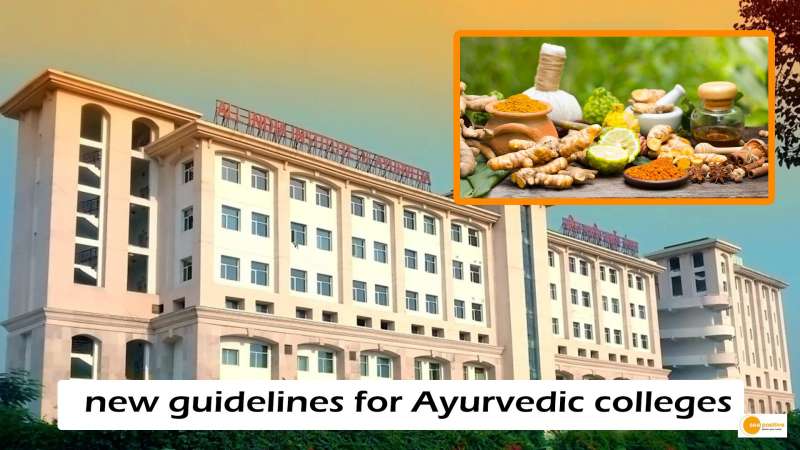

The government established a commission under the National Commission for Indian System of Medicine Act, 2020, to provide quality and affordable medical education while also ensuring the availability of adequate and high-quality medical professionals. The NCISM has an Ayurveda Board that oversees various standards and norms such as infrastructure, faculty, and educational quality. It has now imposed new regulations on Ayurveda colleges.
Out of the 453 Ayurveda colleges in the country, 140 are dedicated to postgraduate courses. Ayurveda has 16 PG subjects. The colleges are required to have a central research laboratory and an animal experimentation laboratory (either owned or in collaboration).
Training facilities for preparation of various types of Ayurveda medicines
According to the requirements of the laboratories in Ayurveda colleges, it includes a teaching pharmacy and a quality testing laboratory, wherein the college will have a teaching pharmacy with proper training facilities for the preparation of various types of Ayurveda medicines such as Churna, Vati, Guggulu, Asava-aristha, Sneha Kalp, Kshar and Lavana, Lauh, Avaleha, Kupipakva Rasayana and A clinical laboratory is also provided for clinical diagnosis.
A course in research methodology and medical statistics has also been planned for the third/final year professional bachelor of ayurvedic medicine and surgery programme. The department of Swasthavritta and yoga is in charge of this course.
NCISM is training postgraduate teachers
According to a press release, NCISM has trained three thousand teachers in the first professional course on Medical Education Technology. In addition, the NCISM is training postgraduate teachers in “Scientific Writing and Publication Ethics” in order to promote scientific diversity.
The National Commission for the Indian System of Medicine has also issued some regulations. “As per the said Regulation, Ayurveda Colleges are to comply with the provisions specified under the Minimum Standards of Undergraduate Ayurveda Education, wherein, Ayurveda Graduates shall have profound knowledge of Ashtanga Ayurveda along with the contemporary advances in the field of Ayurveda supplemented with knowledge of scientific and technical advances in modern sciences and technology along with extensive practical training, as efficient physicians and surgeons for the health care services” read the press release.
Also Read: In the Ayush Ministry summit, this student’s Ayurveda startup received Rs 2.5 crore in funds


